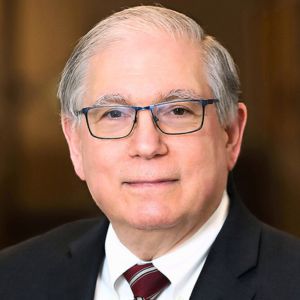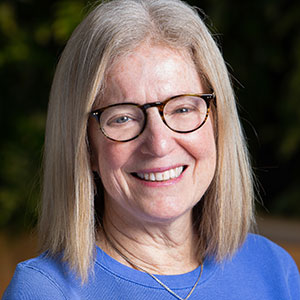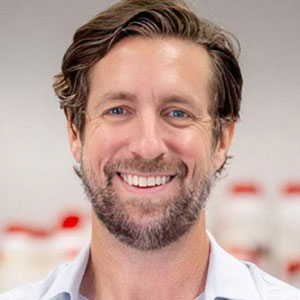ASBMB names 2025 award winners
The American Society for Biochemistry and Molecular Biology announced today the winners of its annual awards. Colleagues and other leaders in the field nominated the winners for making significant contributions to biochemistry and molecular biology as well as to the training and support of emerging scientists.
The recipients will give talks about their work at the society’s 2025 annual meeting slated for April 12–15 in Chicago.
In addition to cash prizes ranging from $2,000 to $35,000, each awardee will receive a plaque and transportation expenses to the annual meeting.
Learn more about the ASBMB awards.
Howard K. Schachman Public Service Award

Awarded to an individual who best demonstrates dedication to public service in support of biomedical science.
Lawrence A. Tabak is the former acting director of the National Institutes of Health. He also previously served as the institute director of the National Institute of Dental and Craniofacial Research and NIH principle deputy director. His lab studied glycoprotein biosynthesis and function. Much of his work focused on mucin-type O-glycans. These discoveries have implications in numerous diseases, such as cancer, cystic fibrosis, inflammatory bowel disease and more. Tabak has received the George Eastman Medal, the John Edward Porter Legacy Award and the NIH Distinguished Health Sciences Alumnus Award. He is also a member of the National Academy of Medicine. Tabak will give prerecorded remarks at the ASBMB annual meeting.
Herbert Tabor Research Award

Given for outstanding, innovative accomplishments in biological chemistry and molecular biology and contributions to the community of scientists.
Joseph Schlessinger is a professor of pharmacology at Yale University School of Medicine. His lab explores the mechanism of activation of receptor tyrosine kinase and their signaling pathways during homeostasis as well as in cancer and other diseases. His research provided the conceptual foundation for targeted cancer therapies, including drugs developed by his biotech companies. He is a member of the National Academy of Sciences, the National Academy of Medicine and the American Academy of Arts and Sciences. His talk will be titled “Cell signaling by receptor tyrosine kinases: From basic principles to cancer and other therapies.” Read more about his work here.
ASBMB DeLano Award for Computational Biosciences

Given to a scientist for accessible and innovative developments or applications of computation to enhance research in the life sciences at the molecular or cellular level.
Rohit V. Pappu is a professor of biomedical engineering and the director for the Center for Biomolecular Condensates at Washington University in St. Louis. The Pappu lab explores the biophysical principles underlying the form, function and phase behaviors of intrinsically disordered and multivalent proteins and connects these to understand how cellular matter is organized in space and time. Pappu is a fellow of the Biophysical Society, the American Association for the Advancement of Science and a Mercator fellow of the German Research Foundation. His talk will be titled “Phase separation in cells: Insights from biophysical computations.” Read more about his work here.
ASBMB Emerging Leadership Award

Honors an individual who is an associate professor, assistant professor or equivalent and with no more than 15 years of experience since receiving a Ph.D. and/or M.D.
Nicole C. Woitowich is a research assistant professor of medicine in the department of medical social sciences at Northwestern University and the executive director of the school’s Clinical and Translational Sciences Institute. Her research investigates the intersections of sex and gender in biomedicine, from research policy to practice, emphasizing the importance of considering sex as a biological variable and the inclusion of women in the biomedical research workforce. She chaired the ASBMB Science Outreach and Communication Committee from 2019 to 2022. Woitowich will give special remarks at the Women’s Networking Dinner. Learn more about her work here.
ASBMB Ruth Kirschstein Diversity in Science Award

Honors an outstanding scientist who has shown a sustained commitment to breaking down local and/or systemic barriers against scientists and students from historically marginalized or excluded groups.
Benjamin A. Garcia is a professor and the head of biochemistry and molecular biophysics at the Washington University School of Medicine in St. Louis. His lab uses quantitative mass spectrometry–based proteomics to characterize modified proteins and proteomes, especially those involved in epigenetic mechanisms. Garcia serves on the editorial board of the ASBMB journal Molecular & Cellular Proteomics. In 2020, he won the Human Proteome Organization’s Discovery in Proteomics Sciences Award for developing mass spectrometry–based experimental and computational platforms for characterizing histone post-translational modifications. His talk will be titled “An unlikely career in science and academia." Read more about his work here.
ASBMB William C. Rose Award for Exemplary Contributions to Education

Recognizes an individual who demonstrates an exceptional contribution to the teaching of biochemistry and molecular biology.
Neena Grover is a professor of chemistry and biochemistry at Colorado College. Her lab studies the role of sequence on small RNA motif stability. They are particularly interested in the interactions between RNA and metal ions. Grover is a founding member of the ASBMB Undergraduate Student Chapters program and serves as the adviser for the K-12 science outreach program at her institution. She is also a former member of the ASBMB steering committee that designed, created and developed course materials and assessment tools to teach the core concepts in biochemistry and molecular biology effectively and consistently. In addition, she has organized workshops and interest groups at the ASBMB annual meetings focused on education and research at primarily undergraduate institutions. Her talk will be titled “Embracing collaborations: Loving what we do and doing what we love." Read more about her work here.
Avanti Award in Lipids

Recognizes outstanding research contributions in the area of lipids.
Judith Storch is a professor of nutritional sciences in the School of Environmental and Biological Sciences at Rutgers University. Her lab studies lipid traffic in cells, with particular emphasis on the proteins that bind long-chain fatty acids, monoacylglycerols and cholesterol. Storch has served on ASBMB’s Journal of Biological Chemistry editorial board and the ASBMB Publications Committee. She is on the steering committee of the ASBMB Lipid Research Division. Storch is a fellow of ASBMB and the American Society for Nutrition. Her talk will be titled “Functional analysis of intracellular lipid-binding proteins.” Read more about her work here.
Bert and Natalie Vallee Award in Biomedical Science

Awarded to an established scientist for outstanding accomplishments in basic biomedical research.
Andre Nussenzweig is a National Institutes of Health distinguished investigator at the Center for Cancer Research, National Cancer Institute of the NIH. His research examines genome stability as well as DNA repair pathways and their roles in cancer prevention. He has won many awards including the Basser Global Prize, the Environmental Mutagenesis and Genomics Society Professional Award and the Health and Human Services Career Achievement Award. Nussenzweig is a member of the European Molecular Biology Organization, the National Academy of Medicine, the National Academy of Sciences and the American Academy of Arts & Sciences. His talk will be titled “Maintaining genome stability." Read more about his work here.
Earl and Thressa Stadtman Young Scholar Award

Awarded to a scientist with no more than 15 years of experience since receiving a Ph.D. and/or M.D.
Vincent Tagliabracci is an associate professor of molecular biology and the Michael L. Rosenberg Scholar in Medical Research at the University of Texas Southwestern Medical Center. His lab has discovered diverse and unexpected biochemical activities performed by protein kinases, including AMPylation, polyglutamylation and messenger RNA capping. These discoveries have provided new insights into the cellular response to oxidative stress and the pathogenic mechanisms used by bacterial and viral pathogens. Tagliabracci won the Norman Hackerman Award in Chemical Research and the Edith and Peter O’Donnell Award in Biological Sciences. In 2021, he was named a Howard Hughes Medical Institute investigator. His talk will be titled “Expanding the kinome." Read more about his work here.
Alice & C.C. Wang Award in Molecular Parasitology

Recognizes established investigators who are making seminal contributions to the field of molecular parasitology.
David A. Fidock is a professor of microbiology and immunology and medical sciences at Columbia University. His lab investigates the life cycle and pathogenesis of the malaria parasite Plasmodium falciparum. Specifically, he is interested in elucidating the molecular and genetic basis of how P. falciparum acquires resistance to antimalarial drugs and how parasite biology can inform the discovery and development of new candidate drugs. Fidock is the incoming President of the American Society of Tropical Medicine. Earlier, he won the society’s Bailey K. Ashford Medal and Trager Award in Molecular Parasitology. He is also a member of the Malaria Policy Advisory Group for the World Health Global Malaria Program. He was named Australian of the Year in Life Sciences in 2016 and was awarded the Project of the Year from the Medicines for Malaria Venture in 2020. His talk will be titled “Molecular insights into antimalarial drug resistance." Read more about his work here.
Walter A. Shaw Young Investigator Award in Lipid Research

Recognizes outstanding research contributions in the area of lipids by a young investigator.
Robert N. Helsley is an assistant professor of medicine at the University of Kentucky College of Medicine. His lab focuses on the mechanisms underlying obesity, chronic liver disease and atherosclerosis. In 2024, he was named a junior associate editor for ASBMB’s Journal of Lipid Research. His talk will be titled “The contribution of fatty acid oxidation to diet-induced hepatocellular carcinoma." Read more about his work here.
Enjoy reading ASBMB Today?
Become a member to receive the print edition four times a year and the digital edition monthly.
Learn moreGet the latest from ASBMB Today
Enter your email address, and we’ll send you a weekly email with recent articles, interviews and more.
Latest in People
People highlights or most popular articles

2026 ASBMB election results
Meet the new Council members and Nominating Committee member.

Simcox wins SACNAS mentorship award
She was recognized for her sustained excellence in mentorship and was honored at SACNAS’ 2025 National Conference.

From humble beginnings to unlocking lysosomal secrets
Monther Abu–Remaileh will receive the ASBMB’s 2026 Walter A. Shaw Young Investigator Award in Lipid Research at the ASBMB Annual Meeting, March 7-10 in Washington, D.C.

Chemistry meets biology to thwart parasites
Margaret Phillips will receive the Alice and C. C. Wang Award in Molecular Parasitology at the ASBMB Annual Meeting, March 7-10 in Washington, D.C.

ASBMB announces 2026 JBC/Tabor awardees
The seven awardees are first authors of outstanding papers published in 2025 in the Journal of Biological Chemistry.

Decoding how bacteria flip host’s molecular switches
Kim Orth will receive the Earl and Thressa Stadtman Distinguished Scientists Award at the ASBMB Annual Meeting, March 7–10, just outside of Washington, D.C.

